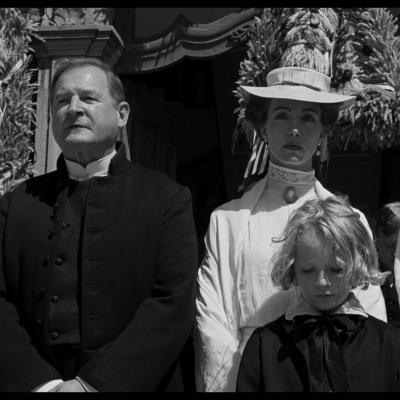
A Film and its Era: The White Ribbon (Michael Haneke)
Portrait of a film: The White Ribbon is the tenth feature film by Austrian director Michael Haneke, released in 2009. In 1913, a small village in Germany, firmly anchored in a rigorous Lutheran tradition, is the setting for a number of strange incidents that little by little reveal themselves as being a ritual against the authorities. The teacher reasons that it must be the children who punish those that do not support the ideas they propagate. These children eventually become the generation leading Hitler to power. Shot in black and white, The White Ribbon won the Palme d’Or in Cannes in 2009. Portrait of an era: Subtitled “A German Children’s Story”, this film shows the educative violence that was exerted in Germany in the early 20th century, forming thus a fertile breeding ground for Nazism. The film confronts the Germans with their own history, but also the Austrians whose populistic leader Jörg Haider, who died in 2008, propagated anti-Semitic ideas and praised Hitler. “I wanted to explore the roots of terrorism, whether politically right, politically left or religious, as well as those dominating our modern times”, said the cineaste as to The White Ribbon. Although it is an historical drama, The White Ribbon is more a parable of the modern world. Portrait of Michael Haneke: Born in Munich in 1942, Michael Haneke has worked as both theatre and film director. In 1989, aged 47, he begins to make feature films, his debut being The Seventh Continent. Most of his films criticise the supremacy of distraction and communication, both making violence commonplace. In 2001, The Piano Teacher brings him the Grand Prix at the Cannes Film Festival. In 2005, Caché gets the prize for Best Director, still in Cannes, and finally, Haneke wins the Palme d’Or twice, one in 2009 for The White Ribbon and one in 2012 for Amour.
